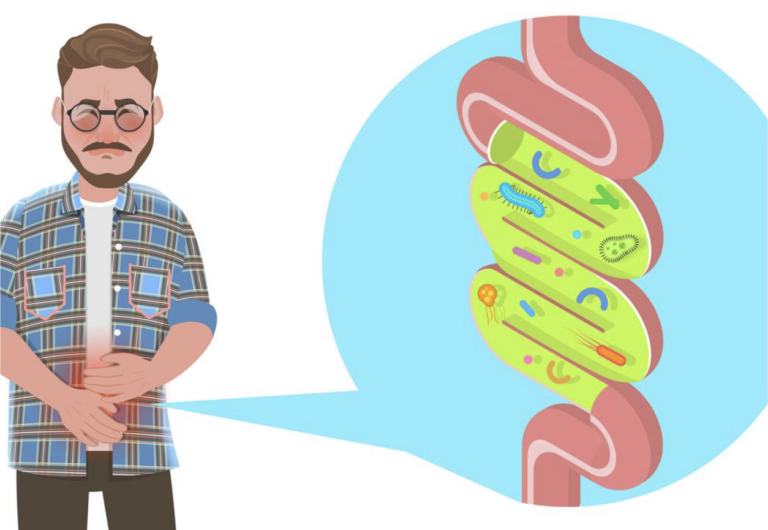
There are ongoing debates in the medical community about a proposed gastrointestinal disorder that health experts call “leaky gut syndrome.” Alternative medicine experts argue that the condition is prevalent among many people and causes ill health.
Physicians have a different opinion and maintain that there isn’t enough scientific evidence to prove the legitimacy of the condition. What is the truth about leaky gut syndrome? This article will delve into the details and everything you need to know.
Most internal organs enjoy some level of protection from external factors. The case isn’t the same for the gastrointestinal tract. It comes into contact with several items from the external environment every day.
The food you consume enters the body through the mouth to the stomach, undergoes digestion, and proceeds to the intestines. This is where the extraction of nutrients and energy occurs.
While the system works well for some people, it can have leakages in others, just like a plumbing system might. The physical structure of the intestines becomes compromised and stops working correctly.
The tight junctions fail to control the materials the intestines absorb, allowing small substances to leak into the bloodstream. The tiny leaks become an ongoing problem and become what health experts call a leaky gut or intestinal permeability.
People receiving chemotherapy, those with a high intake of aspirin and alcohol, Crohn’s disease, and celiac disease have increased intestinal permeability. Physicians argue that intestinal permeability isn’t a cause but a symptom of some chronic diseases and other health problems, including the above.
It generally doesn’t lead to anything more than inflammation of the intestinal wall. Others believe that the condition can improve water absorption and immune system activation.
No symptoms directly signal that you have a leaky gut syndrome, but intestinal permeability usually happens after an injury to the intestinal lining. The leaking substances from the gut to the bloodstream cause inflammation and puts you at risk of specific autoimmune disorders. It may have the following symptoms:
Everyone has some degree of leaky gut, but genetic predisposition may put some people at a higher risk of food sensitivities and food allergies that cause changes in the intestinal lining. DNA isn’t the only thing to blame, as the modern lifestyle may be the primary driver of gut inflammation.
Emerging evidence shows that the American diet may initiate the process of intestinal hyperpermeability because it’s low in fiber and high in saturated fats and sugar. Heavy alcohol consumption and stress are additional triggers.
Physicians identify specific diseases associated with intestinal permeability. There are speculations about other possible illnesses that may correlate with the disorder.
Known Disease Associations
Intestinal permeability is a known feature of several autoimmune diseases and inflammatory conditions of the digestive system. They include celiac disease and inflammatory bowel disease. Scientists consider a leaky gut a symptom and not a cause of these diseases, which lead to chronic inflammation of the intestine and later erosion of the intestinal barrier.
Some studies found intestinal permeability in patients not diagnosed with these diseases. They speculated that intestinal permeability develops independently even without these diseases and may be a contributing factor, hence an early sign of illness.
Possible Disease Associations
Scientists suggest many other diseases as possible consequences of leaky gut syndrome. They argue that toxins that find their way from the intestines to the bloodstream may cause an inflammatory response. One of the factors in many of these diseases is chronic low-grade inflammation, prevalent in conditions like:
Experts have also found gut bacteria products in high levels in the blood of people with gastrointestinal diseases that cause intestinal permeability. In such cases, the inflammation is because of other causes, but bacteria could worsen it.
Gut bacteria are also present in people with liver disease, directly linked to the gut. As bacteria products travel from the stomach to the liver, they could contribute to liver disease, but it doesn’t mean they cause it.
Many leaky gut syndrome proponents recommend solutions based on fad diets. They argue that everyday foods are a leading cause of many problems in most people. These proponents recommend that people avoid foods with high sugar content. Sugar, whether processed or from fruits, causes an overgrowth of a specific yeast strain in the GI, damaging the intestinal wall. Lactose and gluten also have the same effects.
The truth about the leaky gut syndrome is that fruit doesn’t cause a yeast attack on the intestines. A small portion of the population has symptoms related to lactose and glucose intake, but these foods are not harmful to most individuals. Following these fad diets may lead to nutritional deficiencies but will not reduce the symptoms.
People with the notion that fad diets are the solution for leaky gut also try to sell various supplements and products as a treatment for the condition. They provide unproven products for a condition that is yet to receive any scientific backup. Many of these supplements are still scientifically unverified, expensive, and dangerous to your health.
Some people who use these methods claim to feel better within a short time, but this is usually due to the placebo effect. Unless you have a condition like celiac disease or food intolerance that necessitates drastic dietary changes based on scientific research, don’t rely on the advice of practitioners that tell you to remove several foods from your diet.
Fruits and grains are healthy foods that should form part of your daily diet. Be on the lookout for people who tell you to use heavily marketed herbal or natural supplements.
The truth about the leaky gut syndrome is that you’re better off consulting a registered dietitian for treatment. They have the knowledge to advise you on the best foods to consume and those to avoid to treat the condition. You can also find more health tips and expert advice at Allied Digestive Health. Contact us to schedule a consultation for gastroenterological care.
For Your Visit
Great Neck
P: 516-487-7677
F: 516-487-2868
310 E. Shore Rd.
Suite 206
Great Neck, NY 11023
Office Hours
Mon. 9:00 AM – 5:00 PM
Tues. 9:00 AM – 5:00 PM
Wed. 9:00 AM – 5:00 PM
Thurs. 9:00 AM – 5:00 PM
Fri. 9:00 AM – 5:00 PM
Sat & Sun: Closed
© All Rights Reserved

Thank you for your interest in setting up an appointment with us! To schedule your visit, please give us a call. We look forward to assisting you!